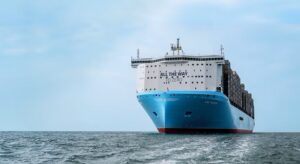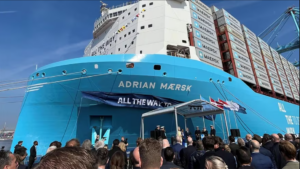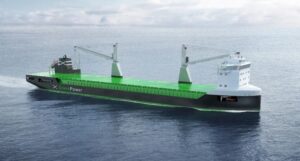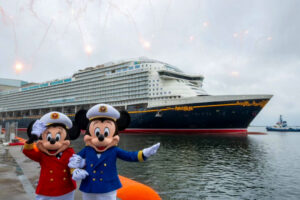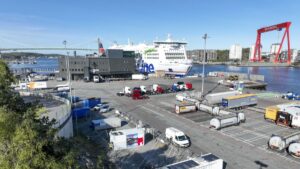World’s first green methanol-powered boxship visits Gothenburg
Laura Maersk, the world’s first green methanol-powered containership owned by Danish Shipping giant A.P. Moller Maersk, has visited the Port of Gothenburg.
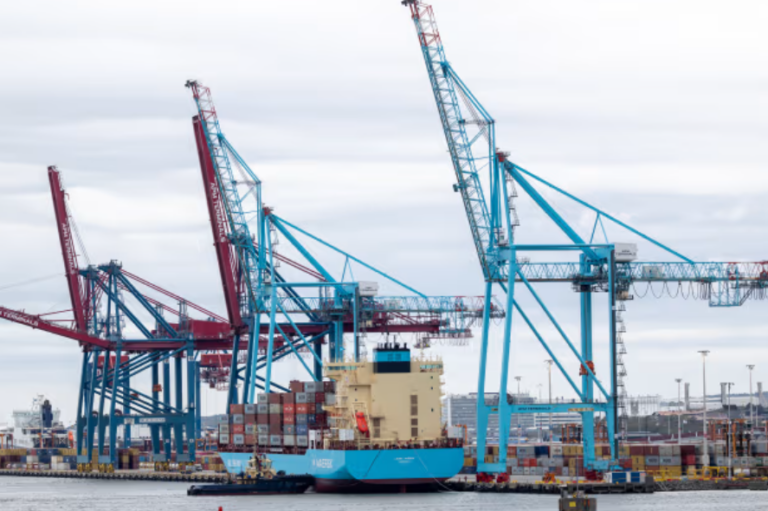
As informed, the ship moored at the port on October 10.
“This ship is a significant milestone for the maritime industry’s green transition, but it is just the beginning. We will see another nearly 200 methanol-powered ships sailing the oceans fairly soon,” said Therese Jällbrink, Head of Renewable Energy at the Gothenburg Port Authority.
The containership, christened in Copenhagen on September 14, marks the start of the global shipping giant Maersk’s major initiative to use renewable methanol as ship fuel. While Laura Maersk may be the first, the company has an additional 25 methanol ships on order for delivery between 2024 and 2027.
”A.P. Møller – Maersk has a goal to achieve net-zero greenhouse gas emissions by 2040, and we are pleased to collaborate with the Port of Gothenburg. Our partners are assisting us in reaching our ambitious green objectives and ensuring our customers a door-to-door service that helps them reduce their carbon footprint in their value chains. No one can tackle this task alone, and we need strong partners for the green transformation of shipping to succeed in time,” stated Birna Odefors, Nordic Managing Director at A.P. Møller – Maersk.
“The production of renewable methanol must increase, and the cost gap between fossil and renewable fuels must decrease. Responsibility lies with everyone, from producers to policymakers, international maritime organizations, ports, and transport buyers. Everyone needs to step up, and we need to continue driving development together,” noted Therese Jällbrink.
Recently, the shipowner launched the first in a new series of twelve new green methanol-powered 16,200 TEU containerships.
Related Article
Starting in 2024, shipping will be included in the EU’s emissions trading system, leading to a reduced cost gap. In the coming couple of years, regulations from both the EU and the International Maritime Organization (IMO) will become stricter, with the IMO recently raising the goal from 50% to net-zero greenhouse gas emissions for shipping in 2050, while stepping down emissions incrementally according to the IMO’s roadmap on the way.
Maersk is not alone in making significant investments in renewable methanol propulsion. Several other shipping companies have vessels on order, with a total of around 200 either in production or undergoing conversion for methanol propulsion, approximately 125 of which are containerships.
The Port of Gothenburg is working to create conditions and incentives for this transition. Securing a supply of renewable fuels is a crucial part, and the port aims to become Scandinavia’s largest hub for renewable energy. Renewable methanol is seen as a key component of the fuel mix.


